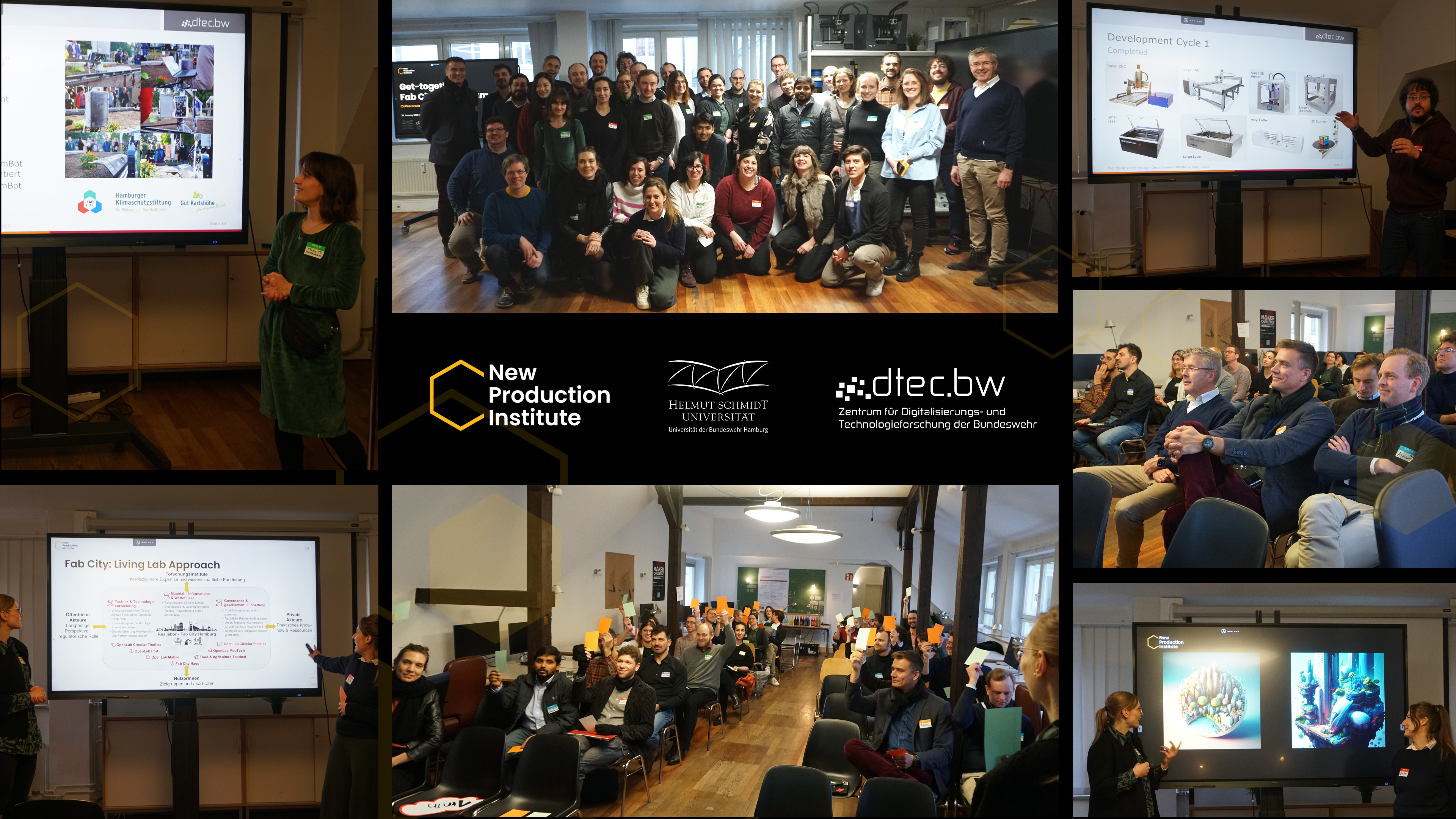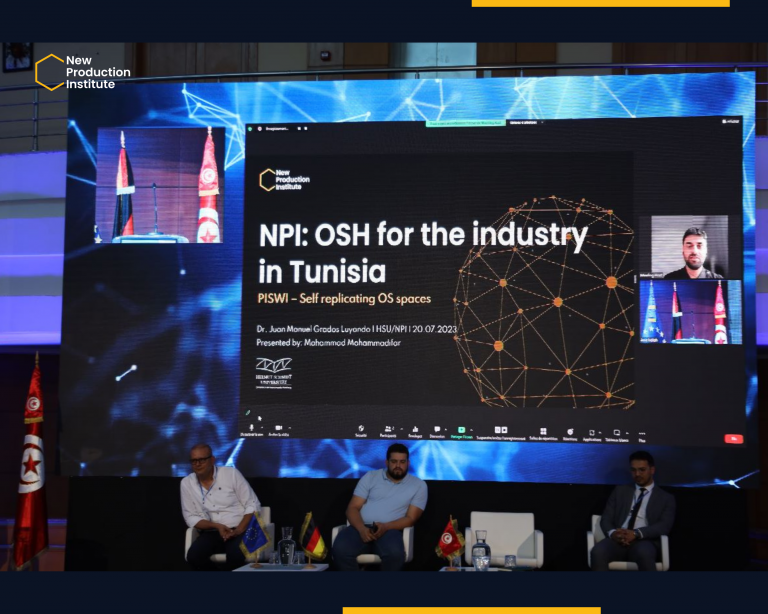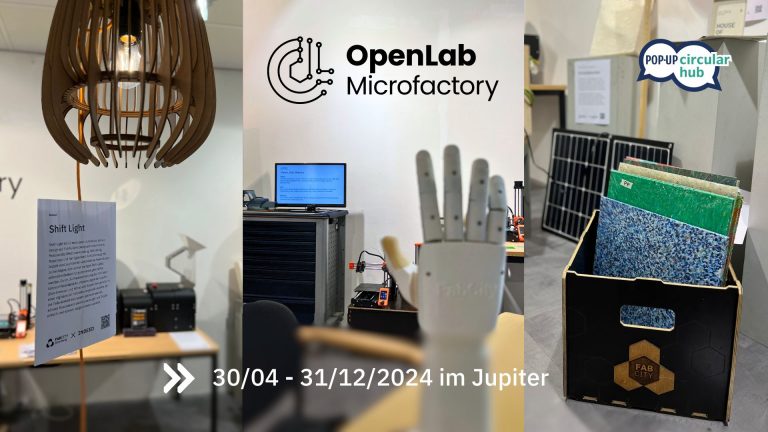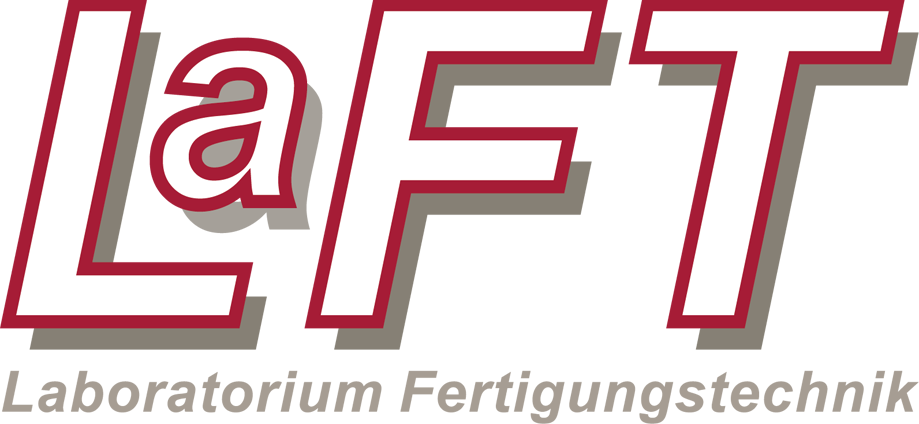On 26 January 2023, the third consortium meeting of the Fab City project of Helmut Schmidt University / University of the Federal Armed Forces Hamburg, funded by dtec.bw, took place. Research and application partners involved in the research project presented their work status at the Fab City Haus in Hamburg.
Dr. rer. nat. Sonja Buxbaum-Conradi and Svenja Zadow from the New Production Institute opened the meeting with an overview of the range of scientific research topics characterised by the transdisciplinary design of the consortium led by Prof. Dr. Jens Wulfsberg and Dr.-Ing. Tobias Redlich. By closely linking the real laboratories being created in Hamburg with the empirically working scientists, research results should support the design of the Fab City Hamburg in 2054.
But what exactly can the city of the future look like? With the help of artificial intelligence, we approached this question during the network meeting and started a thought experiment: Using keywords such as future city, digital network, children, regenerative, bits and atoms, green and white spaces, car-free, water, sun, circular, vertical agriculture, we had the city of the future created using artificial intelligence.
Following the vision of the future, the meeting started with the presentation of the various OpenLabs that serve as living labs for the Fab City project, including OpenLab mobile, OpenLab port, OpenLab Circular Plastics, OpenLab MedTech, or the OpenLab Circular Textiles. In particular, the presentation of the current status of the OpenLab Starter Kit, the eight open source machines that will be documented for everyone at the end of the project, and the presentation on the FarmBot, deepened the engineering perspective in the transdisciplinary research approach.
This was followed by the current research statuses of the five participating Hamburg universities and the federal research institution (PTB). Kühne Logistics University presented the current status of the sub-projects on Supply and Operations Management, Citizen Innovation and Food Supply Chains. The Technical University of Hamburg-Harburg explained the diffusion of innovation and the associated impact. The Bucerius Law School presented the interim results of its legal research accompanying innovation. The participants were able to discuss the progress of the research project in depth and look forward together to the next research year 2023-2024.








